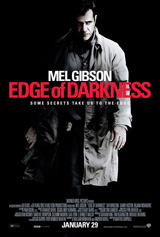Relative pronouns—who, whom, whose, which, that, and what—introduce a relative (or subordinate) clause and relates it to the rest of the sentence.
Who Vs. Whom
Who is in subjective case. It can be used when the relative pronoun serves as the subject of the subordinate clause:
Led by Brett Favre, who played quarterback at rival Green Bay for fifteen years, the Minnesota Vikings are one game away from the Super Bowl.
Whom is in objective case. It can also be used in two situations: as the object of a verb or the object of a preposition:
Brad Childress, whom the team hired four years ago, has finally coached the Vikings to the NFC Championship game.
Crucial to the Vikings win yesterday was Sidney Rice, to whom Favre threw three touchdown passes.
If you’re having a hard time figuring out whether the relative pronoun is in subjective or objective case, substitute he or him, rewriting the sentence as necessary:
Led by Brett Favre, the Minnesota Vikings are one game away from the Super Bowl. He played quarterback at rival Green Bay for years.
Brad Childress has finally coached the Vikings to the NFC Championship game. The team hired him four years ago.
Crucial to the Vikings win yesterday was Sidney Rice. Favre threw three touchdown passes to him.
If you would use he in the sentence, then use who. If you would use him in the sentence, use whom. Just remember that the m’s in him and whom go together.
Whose is in the possessive case and thus shows ownership:
Adrian Peterson, whose running game is a constant threat, had a relatively quiet game.
Who Vs. Which Vs. That Vs. What
Use who, whom, and whose only when referring to a person. They can be used in first, second, or third person. (See examples above.)
Use which only when referring to an animal or thing:
The team, which got skunked in its last division championship by the New York Giants in 2001, goes into New Orleans with a definitive win against Dallas.
Use what only when referring to a nonliving thing:
The drubbing was exactly what the Vikings needed going into next week’s game against the Saints.
Both which and what can be used in the second or third person, but not in the first.
Use that to refer to a person, animal, or thing. It can be used in the first, second, or third person:
In the locker room after the game, Favre sang the “Pants on the Ground” song that was made famous on American Idol.
For the difference between that and which, see this previous post on comma use with subordinate clauses.
Compound Relative Pronouns
Compound relative pronouns are formed by adding the suffice -ever to who, whom, what, or which. Whoever, whomever, whatever, and whichever don’t point back to a noun or pronoun but refer generally to any or all people or things:
Whomever the Vikings face in the rest of the playoffs will be formidable opponents.
Whatever happens next weekend, the Vikings had a fun and exciting season.
Do you have a question about pronouns? Let me know, and I’ll include it in a future installment of Mots Justes’ ongoing series.
The Mots Justes Series on Pronouns
Part II—Location, Location, Location
Part V—Gender, Plus “They” as a Gender-Neutral Singular Pronoun
Part VII—Something Personal Between You and Me
Part X—Indefinitely (We, You, and They)
Resources
Chicago Manual of Style, The. 15th ed. Chicago: The University of Chicago Press, 2003.
Hacker, Diana, The Bedford Handbook for Writers, 3rd ed. Boston: St. Martin’s Press: 1991.








Love the gridiron-inspired examples.
Thanks! Go Vikes! -ae